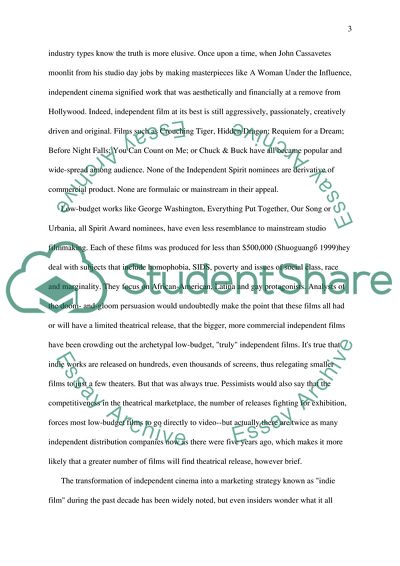Cite this document
(American Independent Cinema: Hollywood vs. the Independent Term Paper, n.d.)
American Independent Cinema: Hollywood vs. the Independent Term Paper. https://studentshare.org/visual-arts-film-studies/1704824-american-independent-cinema-hollywood-vs-the-independent
American Independent Cinema: Hollywood vs. the Independent Term Paper. https://studentshare.org/visual-arts-film-studies/1704824-american-independent-cinema-hollywood-vs-the-independent
(American Independent Cinema: Hollywood Vs. The Independent Term Paper)
American Independent Cinema: Hollywood Vs. The Independent Term Paper. https://studentshare.org/visual-arts-film-studies/1704824-american-independent-cinema-hollywood-vs-the-independent.
American Independent Cinema: Hollywood Vs. The Independent Term Paper. https://studentshare.org/visual-arts-film-studies/1704824-american-independent-cinema-hollywood-vs-the-independent.
“American Independent Cinema: Hollywood Vs. The Independent Term Paper”. https://studentshare.org/visual-arts-film-studies/1704824-american-independent-cinema-hollywood-vs-the-independent.


